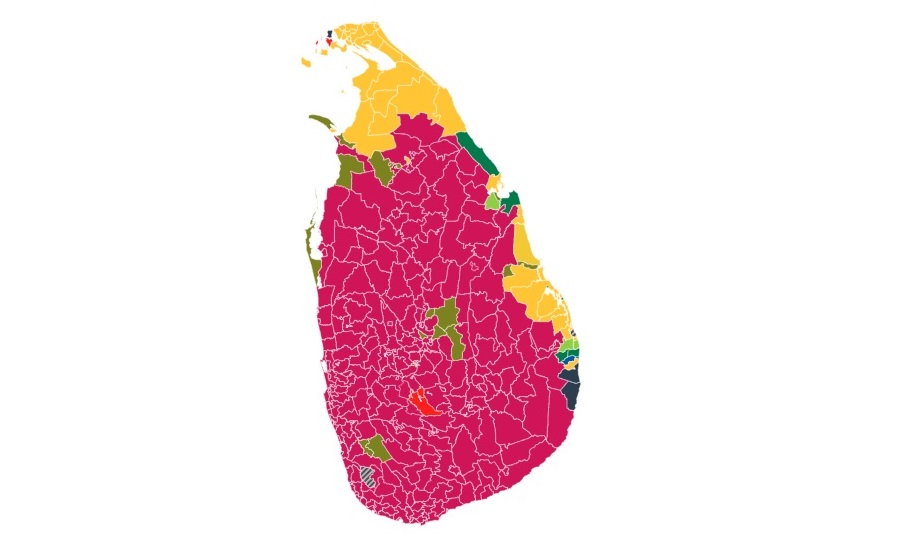
Sri Lanka’s recent local government elections illustrated a sharp decline in support for the National People’s Power (NPP), a fall most pronounced in the Tamil North-East. Less than a year since it swept into both presidential and parliamentary power on a platform of anti-corruption and political reform, the coalition now finds itself facing growing disillusionment, especially among the Tamils who had tentatively extended it goodwill last year.
Eight months into its rule, the NPP’s record in government has made clear its unwillingness to seriously engage with the concerns and priorities of the Tamil people. While its attention has been focused on corruption and economic stabilisation in the Sinhala south, longstanding Tamil demands such as demilitarisation, an end to state-sponsored colonisation, and meaningful accountability for genocide, have been conspicuously sidelined.
Sri Lanka’s president and prime minister have both continued to reject international mechanisms for accountability and instead continue to champion the same failed domestic institutions of their predecessors. This includes their vocal support for the Office on Missing Persons (OMP), a mechanism discredited long ago by Tamil families of the disappeared, and their repeated refusal to comply with UN resolutions. That the NPP clings to the very structures employed by previous regimes demonstrates precisely why many see little to separate it from the governments that came before.
On demilitarisation, even the symbolic gesture of closing a single military camp in Jaffna has not materialised. Not one unit has been withdrawn. Tens of thousands of Sri Lankan soldiers remain deployed across the Tamil homeland, occupying land, intimidating activists, and enforcing a surveillance state. Simultaneously, state-sponsored colonisation continues unabated. Buddhist temples and statues are constructed deep in Tamil areas, often with military support. In places like Thaiyiddy, even when Buddhist monks have admitted that these constructions violate Sri Lanka’s own laws, the state has proven itself to be unwilling and unable to act.
Worse still is the government’s most recent apparent attempt to appropriate vast swathes of land – including a massive 5,940 acres across Mullaitivu, Jaffna, Kilinochchi and Mannar. This egregious new announcement, which faced instant backlash, included the seizure of land in Mullivaikkal, the site of the 2009 genocide. These areas were designated “No Fire Zones” in 2009, where tens of thousands of Tamil civilians were promised safety but instead subjected to indiscriminate military shelling. The attempt to seize such a vast amount of land is a brazen and calculated expansion of Sinhala colonialism, and flies in the face of all previous claims by the government that it has rejected such extremist ideology.
It is no surprise, then, that the Tamil support the NPP had gathered, has now sharply declined.
Yet these results are not just a rejection of the NPP. They are also a reaffirmation of Tamil nationalism. The fact that the NPP itself released pro-LTTE songs in the run-up to the election was a tacit admission that, even 16 years after the genocide at Mullivaikkal, Tamil nationalist sentiment runs deep. It cannot be ignored. Far from withering away, Tamil political identity continues to shape the region’s electoral dynamics.
The latest polls, like so many of Sri Lanka’s electoral exercises, will hardly be consequential for the Tamil nation. Tamils have long understood the limits of Sri Lankan electoral politics, and Tamil parties too must be aware that this is not necessarily a renewed endorsement of their parochial politics. Instead, it is a reminder of the Tamil nation’s cognisance that the institutions of the state, whether dressed in the NPP or any other Sinhala party are structurally resistant to genuine reform. That is why the Tamil struggle has always extended beyond Colombo, seeking action through international advocacy and transnational solidarity. That is there where the path to accountability, justice and a lasting peace lies.
